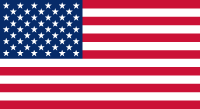
If you’re new to the exciting game of pool or a veteran shark, there are many variables to consider as you ponder how to choose a pool cue.
It is Important to Know How to Pick a Pool Cue
If you’re unsure how to choose a good pool cue, you might just use a community stick at the pool hall. But one of the worst things you can do for your game is constantly playing with a different cue. This makes developing a consistent game more challenging than it should be.
So it’s clear that you need your own pool cue. But there are some things you need to look for and some things to avoid, so here are a few pointers on how to pick a pool cue that’s perfect for you.
Budget
One of the first things to consider when learning how to choose a pool cue is the price. You may be tempted to spend as little as $50 on it, but you should know that you get what you pay for. That doesn’t mean you should drop $1,000 on a pool cue (or even more). This simply means that quality comes at a price.
You don’t need to overspend on flashy features like custom engravings, but it may be a good idea to invest in a pool cue that’s adjustable for weight and has a quality tip, at the very least. As a good rule of thumb, if you spend $150–$200 from a quality supplier, you’ll likely get yourself a great pool cue that will last for years.
One- or Two-Piece
If you’re not clear on how to choose a good pool cue, you’ve surely run into the issue of whether you should purchase a one- or two-piece cue. And the easiest way to answer that question is to determine whether you’re planning on carrying it with you to play games anywhere other than at home. If home is where it’s going to stay, a one-piece cue is an obvious choice.
But if you carry it across town to play at a dive bar, you’ll likely need to purchase a two-piece cue. Most will either come with a carrying case or will have an option for one.
As an added benefit, when you show up and pop the latches on the case, pulling out your personal pool cue, everyone around will think you’re a pretty serious player — whether you are or not.
Weight
Pool cues are like bowling balls in that they come in different weights, but they’re different in that you can often adjust the weight of your cue. If you want to know how to choose a good pool cue where weight is concerned, one of the best ways is to try out your options.
Choosing a heavy over a light stick doesn’t necessarily net you any kind of advantage. The lighter pool cue will lend more crackle to your shots, but the added mass of a heavier stick will carry more power through inertia.
Most pool cues weigh about 18 oz. to 21 oz., but there are even lighter and heavier cues that you may consider if you’d like. If you’re unsure what weight is ideal for you, make sure your new cue has a removable bumper (or counterweight), so you can manually change its weight.
Common wisdom suggests that a lighter stick produces conditions that make it difficult to control the cue ball. On the other hand, a heavier stick can sometimes make it difficult to control the shot because it delivers more power through each stroke.
Length
Pool cues are typically 55 to 57 inches long, ideal for most players. But those above six feet in height might consider something in the 58- to 62-inch range. Children or shorter adults may be best suited for anything from 36 to 52 inches.
But at the end of the day, what matters most is a player’s reach. Just because a person is tall doesn’t mean they have a long reach; they may just have long legs. If you’re stuck wondering how to choose a pool cue that’s best for your height, perhaps the best rule of thumb is to choose the cue that feels best for you.
Grips, Tips, and Other Matters
Most cues come with a standard size tip at 13mm (about half an inch). But variants are available in increments of 0.25mm, making a huge difference if you make even small adjustments in tip size.
Most pool hall gurus claim that the smaller the tip, the more “English” you can put on the ball. So if you want to be able to make that sneaky spin shot, you might try a smaller tip. A larger tip might be the wiser choice if you want to drive balls into pockets with perfect accuracy.
As for grips, a natural leather grip is recommended, as it’s best for either dry or sweaty hands — a true, all-weather friend.
A Cue of Your Own
Personal ownership of a pool cue makes a huge difference in your game, and now you know how to pick a pool cue that’s perfect for you. Now, you won’t have to put up with worn-out tips, crummy grips, or warped shafts. For a great selection of pool cues and cases, contact Billiard Factory today.







 Shop now. Pay over time with affirm
Shop now. Pay over time with affirm